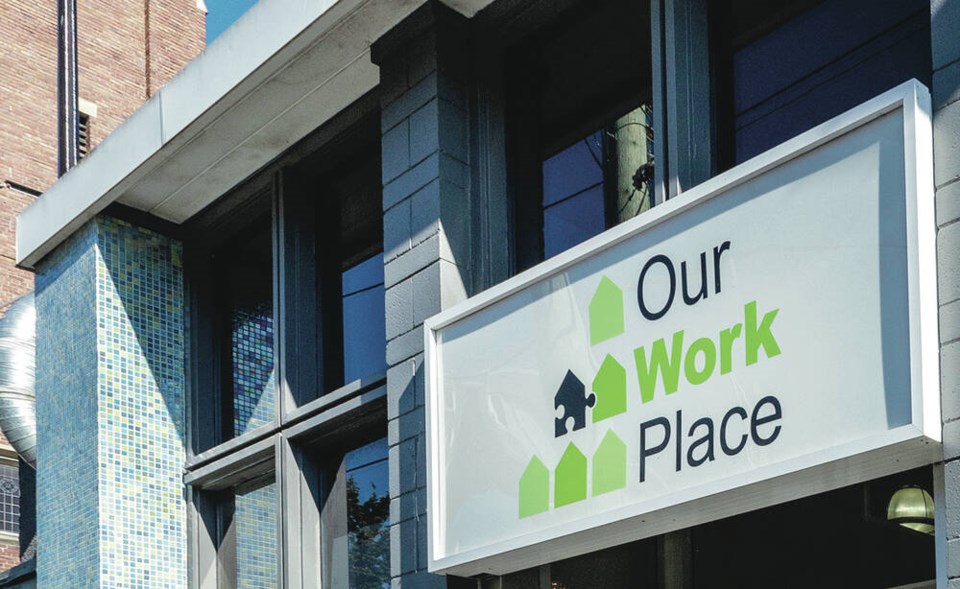To the dismay of many, a program in downtown Victoria that helps recovering addicts find employment has been closed.
Our WorkPlace, a subsidiary of the community service agency Our Place, has been in operation for six years. Over that time it helped close to 100 people find work, and this at a time when the COVID epidemic was causing widespread job loss.
In just its past year alone, the program assisted 139 clients a month, some of them with such basic job-search skills as completing a resume.
During its initial years in operation, the program was funded entirely by charitable donations. But as that money fell short, in 2021 the provincial Ministry of Social Development and Poverty Reduction (SDPR) gave the program a $300,000 grant to cover an 18-month period.
However those funds were cancelled in April this year.
As a result, the program was closed and the four staff members were laid off, taking both staff and clients by surprise.
On its face, this decision makes no sense. Why would the province withdraw funding from such a much-needed program?
The annual budget of the SDPR ministry is $4.7 billion. While a large part of that goes for income assistance payments, the grant to Our WorkPlace represented a minuscule proportion of the resources available.
Did the ministry suffer a funding cut in this year’s budget? Perhaps that might account for the grant being eliminated?
But no, the ministry received a seven per cent raise. No help there.
It’s true, the province supports several job placement programs. There are always more needs to be met than money to go around.
It’s also true that the grant given Our WorkPlace was in the form of temporary assistance.
Against that, B.C. is on pace to suffer the highest number of overdose deaths ever. More than 1,200 died in the first six months of the year, and overdose fatalities are now the No. 1 cause of death in our province for people between the ages of 10 and 59.
In response, the Ministry of Mental Health and Addictions is managing a province-wide decriminalization of street drugs.
This three year, one-of-a-kind experiment is, at a minimum, a formidable proposition. If ever a project dare not fail, this is it.
Minister Jennifer Whiteside has protested at claims made by opponents, including federal Conservative Party leader Pierre Poilievre, that decriminalization is an invitation to increased use of street drugs.
Without strong measures to combat this risk, that could well prove true. And the most constructive measures involve weaning long-term addicts off street drugs, and back into meaningful employment.
The importance of work as a stabilizing and where necessary a rehabilitating force is well established.
If we want to get people off the street, it’s essential to give those who can work the opportunity to do so.
This is no easy task. Years of drug use can be an enormous barrier to a recovering lifestyle. That must be faced.
But if Whiteside is to make a success of decriminalization, with critics on all sides waiting to pounce, she has to chart a path out of addiction.
Our WorkPlace was established precisely to undertake this task.
Moreover the parent agency, Our Place, runs one of the most successful outreach programs in the province. With years of experience delivering recovery programs and aiding homeless people find housing, the agency is well placed to backstop a program to help addicts back into the workplace.
Given these considerations, it makes absolutely no sense to defund the Our WorkPlace program.
The ministry should reconsider its decision.
>>> To comment on this article, write a letter to the editor: [email protected]



